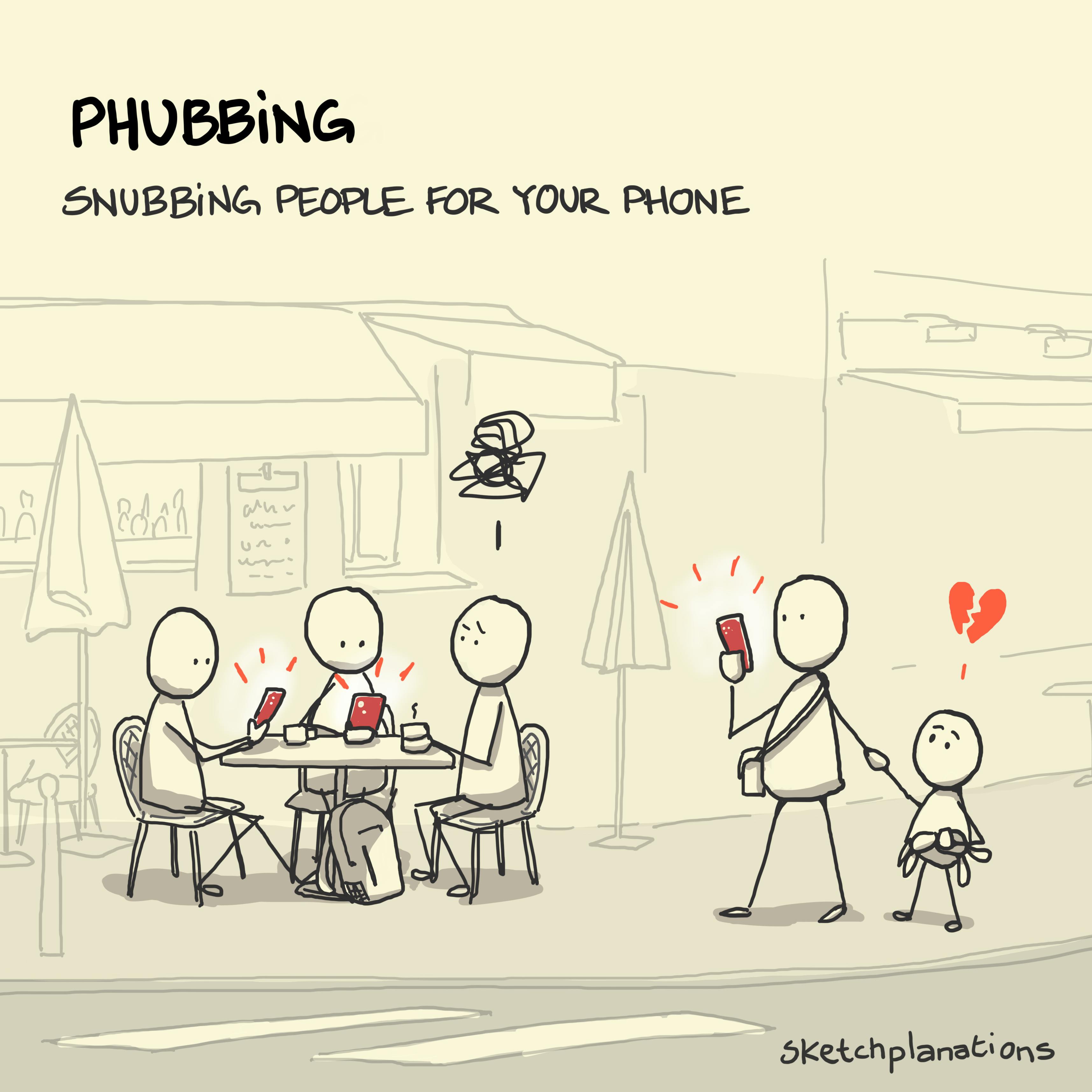Phubbing: What It Means and Why It Matters

👇 Get new sketches each week
Phubbing is snubbing people for your phone.
We've probably all experienced it—heck, we've probably all done it at one point or another—or at least it's likely familiar. It could involve
- someone in a restaurant waiting for their friends to put their phones down,
- a family gathering where people are no longer talking to each other,
- a teacher without the attention of their students,
- or a child failing to get the attention of an adult who's trying to process some messages on their phone.
These are all classic moments of digital distraction creeping into everyday life.
Phubbing meaning
The word phubbing is a portmanteau combining the words phone and snubbing. It describes the behaviour of ignoring a companion to pay attention to a phone or other mobile device.
The word phubbing has the unusual distinction of being created for an advertising campaign to sell a dictionary .
The Psychology of Phubbing
Research on phubbing, mostly since the word was coined, says it largely has the effects you'd think it would. Being ignored, even briefly, can make people feel excluded, less valued, and less connected.
The effects vary with who's being phubbed and who's doing the phubbing: bosses and employees, family members, parents and kids, or partners. Whoever's phubbing who, snubbing is a suitable root word for it — it's not so nice to feel snubbed.
Effects on Children and Relationships
Kids are sensitive to phubbing. It can affect their mood, trust, and sense of attention from the adults around them. I've been asked by my children about my screen time habits.
In relationships, frequent phubbing can chip away at closeness and make conversations feel more fragmented — a bit like trying to talk to someone who is only half in the room.
See, for example, Knausenberger, J. et al. (2022). Feeling Ostracized by Others’ Smartphone Use: The Effect of Phubbing on Fundamental Needs, Mood, and Trust . Frontiers in Psychology, 13. https://doi.org/10.3389/fpsyg.2022.883901
Quick questions
Is phubbing bad? Not always, but repeated phubbing can make people feel ignored or less connected.
Why do people phub? Often it’s habit rather than intention — phones are designed to pull attention, even when we’d rather stay present.
I learned about phubbing from the Mind over Tech community, which also publishes a newsletter on forming better digital habits .
Related Ideas to Phubbing
Also see:
- For more phone annoyance, see Halfalogue.
- Phone zombie
- Continuous partial attention
- When drinking tea
- Phubbing is a portmanteau
Prints and products without the text

